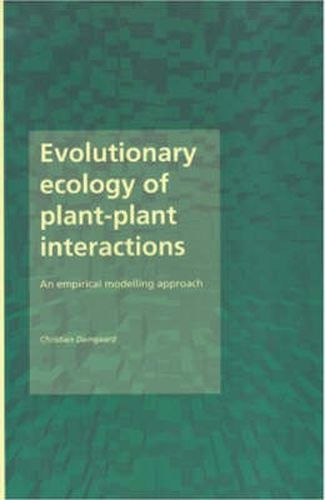Readings Newsletter
Become a Readings Member to make your shopping experience even easier.
Sign in or sign up for free!
You’re not far away from qualifying for FREE standard shipping within Australia
You’ve qualified for FREE standard shipping within Australia
The cart is loading…






By Working at the intersection of ecology and evolutionary biology, evolutionary ecologists tend to rely on the dominant mathematical models from one of the two parent fields. Yet these transplanted models have their shortcomings. On the one hand, the frequency models used in evolutionary biology have a hard time accounting for certain factors (like resource limitations) that are central to many ecological problems. On the other hand, there is a strong tradition in ecology, especially plant ecology, to eschew mathematical models altogether in favour of qualitative description. Even when such a model is used, it is too often an inappropriately applied standard linear model. The result has been a call for simple models that enable greater biological and environmental realism than heretofore – models that will allow for more rigorous testing of hypotheses and more accurate predictions. Such predictions are increasingly in demand not only in the scientific pursuit of plant ecology, but also in public policy applications, such as conservation management and the risk assessment of genetically modified organisms. This volume seeks to address this need by presenting several simple empirical models that have proven invaluable to quantitative and statistical analysis in evolutionary plant ecology. Moreover, it provides conceptual links among the various models, e.g. describing the underlying ideas and relative strengths of plant-size explicit modelling and mean-field modelling. The overall approach is empirical rather than mechanistic, acknowledging at the same time the sedentary nature of most plants and the central role of neighbouring plants.
$9.00 standard shipping within Australia
FREE standard shipping within Australia for orders over $100.00
Express & International shipping calculated at checkout
By Working at the intersection of ecology and evolutionary biology, evolutionary ecologists tend to rely on the dominant mathematical models from one of the two parent fields. Yet these transplanted models have their shortcomings. On the one hand, the frequency models used in evolutionary biology have a hard time accounting for certain factors (like resource limitations) that are central to many ecological problems. On the other hand, there is a strong tradition in ecology, especially plant ecology, to eschew mathematical models altogether in favour of qualitative description. Even when such a model is used, it is too often an inappropriately applied standard linear model. The result has been a call for simple models that enable greater biological and environmental realism than heretofore – models that will allow for more rigorous testing of hypotheses and more accurate predictions. Such predictions are increasingly in demand not only in the scientific pursuit of plant ecology, but also in public policy applications, such as conservation management and the risk assessment of genetically modified organisms. This volume seeks to address this need by presenting several simple empirical models that have proven invaluable to quantitative and statistical analysis in evolutionary plant ecology. Moreover, it provides conceptual links among the various models, e.g. describing the underlying ideas and relative strengths of plant-size explicit modelling and mean-field modelling. The overall approach is empirical rather than mechanistic, acknowledging at the same time the sedentary nature of most plants and the central role of neighbouring plants.